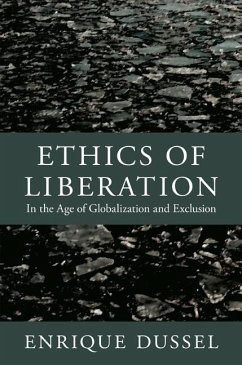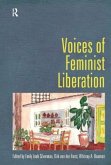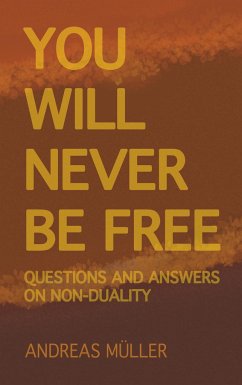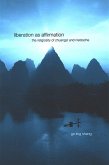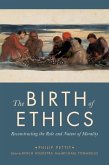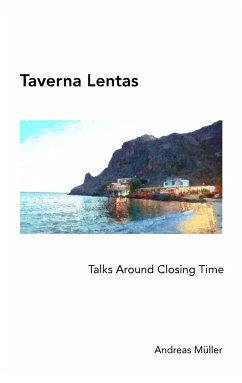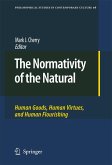Enrique DusselIn the Age of Globalization and Exclusion
Ethics of Liberation
In the Age of Globalization and Exclusion
Herausgeber: Vallega, Alejandro A / Übersetzer: Maldonado-Torres, Nelson; Pérez-Bustillo, Camilo; Angulo, Yolanda; Mendieta, Eduardo
Enrique DusselIn the Age of Globalization and Exclusion
Ethics of Liberation
In the Age of Globalization and Exclusion
Herausgeber: Vallega, Alejandro A / Übersetzer: Maldonado-Torres, Nelson; Pérez-Bustillo, Camilo; Angulo, Yolanda; Mendieta, Eduardo
- Gebundenes Buch
- Merkliste
- Auf die Merkliste
- Bewerten Bewerten
- Teilen
- Produkt teilen
- Produkterinnerung
- Produkterinnerung
Enrique Dussel teaches philosophy at the Universidad Autónoma Metropolitana, Iztapalapa, and at the Universidad Nacional Autónoma de México in Mexico City. He is the author of many books, including Beyond Philosophy: Ethics, History, Marxism, and Liberation Theology and The Invention of the Americas: Eclipse of the "Other" and the Myth of Modernity . His books Twenty Theses on Politics and Coloniality at Large: Latin America and the Postcolonial Debate (edited with Mabel Moraña and Carlos A. Jáuregui) are both also published by Duke University Press.
Andere Kunden interessierten sich auch für
![Voices of Feminist Liberation Voices of Feminist Liberation]() Emily Leah SilvermanVoices of Feminist Liberation181,99 €
Emily Leah SilvermanVoices of Feminist Liberation181,99 €![You will never be free You will never be free]() Andreas MüllerYou will never be free10,50 €
Andreas MüllerYou will never be free10,50 €![Liberation as Affirmation Liberation as Affirmation]() Ge Ling ShangLiberation as Affirmation97,99 €
Ge Ling ShangLiberation as Affirmation97,99 €![The Birth of Ethics The Birth of Ethics]() Philip PettitThe Birth of Ethics52,99 €
Philip PettitThe Birth of Ethics52,99 €![Taverna Lentas Taverna Lentas]() Andreas MüllerTaverna Lentas9,90 €
Andreas MüllerTaverna Lentas9,90 €![The Normativity of the Natural The Normativity of the Natural]() Mark J. Cherry (ed.)The Normativity of the Natural75,99 €
Mark J. Cherry (ed.)The Normativity of the Natural75,99 €![Oxford Studies in Normative Ethics Volume 14 Oxford Studies in Normative Ethics Volume 14]() Oxford Studies in Normative Ethics Volume 14115,99 €
Oxford Studies in Normative Ethics Volume 14115,99 €-
-
-
Enrique Dussel teaches philosophy at the Universidad Autónoma Metropolitana, Iztapalapa, and at the Universidad Nacional Autónoma de México in Mexico City. He is the author of many books, including Beyond Philosophy: Ethics, History, Marxism, and Liberation Theology and The Invention of the Americas: Eclipse of the "Other" and the Myth of Modernity . His books Twenty Theses on Politics and Coloniality at Large: Latin America and the Postcolonial Debate (edited with Mabel Moraña and Carlos A. Jáuregui) are both also published by Duke University Press.
Hinweis: Dieser Artikel kann nur an eine deutsche Lieferadresse ausgeliefert werden.
Hinweis: Dieser Artikel kann nur an eine deutsche Lieferadresse ausgeliefert werden.
Produktdetails
- Produktdetails
- Verlag: Duke University Press
- Seitenzahl: 752
- Erscheinungstermin: 8. Februar 2013
- Englisch
- Gewicht: 1197g
- ISBN-13: 9780822352013
- ISBN-10: 082235201X
- Artikelnr.: 35216903
- Herstellerkennzeichnung
- Libri GmbH
- Europaallee 1
- 36244 Bad Hersfeld
- gpsr@libri.de
- Verlag: Duke University Press
- Seitenzahl: 752
- Erscheinungstermin: 8. Februar 2013
- Englisch
- Gewicht: 1197g
- ISBN-13: 9780822352013
- ISBN-10: 082235201X
- Artikelnr.: 35216903
- Herstellerkennzeichnung
- Libri GmbH
- Europaallee 1
- 36244 Bad Hersfeld
- gpsr@libri.de
Enrique Dussel
About the Series xi
Editor's Foreword to the English Edition xiii
Preface xv
Introduction: World History of Ethical Systems 1
I.1. Origin of the Interregional System: Afro-Bantu Egypt and the Semites
of the Middle East 6
I.2. Cultures without Direct Links to the System: The Mesoamerican and Inca
Worlds 9
I.3. The "Indoeuropean" World: From the Chinese to the Roman Empire 13
I.4. The Byzantine World, Muslim Hegemony, and the East: The European
Medieval Periphery 17
I.5. Unfolding of the World System: From "Modern" Spain of the Sixteenth
Century 26
I.6. Modernity as "Management" of Planetary Centrality and Its Contemporary
Crisis 32
I.7. The Liberation of Philosophy? 40
Part I: Foundation of Ethics 53
I. The Material Moment of Ethics: Practical Truth 55
1.1. The Human Cerebral Cognitive and Affective-Appetitive System 57
1.2. Utilitarianism 69
1.3. Communitarianism 77
1.4. Some Ethics of Content or Material Ethics 85
1.5. The Criterion and Universal Material Principle of Ethics 92
2. Formal Morality: Intersubjective Validity 108
2.1. The Transcendental Morality of Immanuel Kent 110
2.2. The Neocontractualist Formalism of John Rawls 115
2.3. The "Discourse Ethics" of Karl-Otto Apel 121
2.4. The Moral Majority of Jürgen Habermas 128
2.5. The Criterion of Validity and the Universal, Formal Principle of
Morality 141
3. Ethical Feasibility and the "Goodness Claim" 158
3.1 The Pragmatism of Charles S. Pierce 160
3.2. The Pragmatic Realism of Hilary Putnam 167
3.3. The Functional or Formal "System" of Niklas Luhmann 175
3.4. The "Feasibility" of Franz Hinkelammert 181
3.5. The Criterion and the Ethical Principle of Feasibility 186
Part II. Critical Ethics, Antihegemonic Validity, and the Praxis of
Liberation 205
4. The Ethical Criticism of the Prevailing System: From the Perspective of
the Negativity of the Victims 215
4.1 Marx's Critique of Political Economics 218
4.2. The "Negative" and the "Material" in Critical Theory: Horkheimer,
Adorno, Marcuse, and Benjamin 234
4.3. The Dialectics of Drive 250
4.4. The Critical Criterion and the Material or Ethical-Critical Principle
278
5. The Antihegemonic Validity of the Community of Victims 291
5.1. Rigoberta Menchü 293
5.2. The Ethical-Critical Process of Paulo Freire 303
5.3. Functionalist and Critical Paradigms 320
5.4. The "Principle of Hope" of Ernst Bloch 334
5.5. The Critical-Discursive Criterion and the Principle of Validity 342
6. The Liberation Principle 355
6.1. The "Organization Question": From Vanguard toward Symmetric
Participation—Theory and Praxis? 359
6.2. The "Issue of the Subject": Emergence of New Sociohistorical Actors
373
6.3. The "Reform-Transformation" Question 388
6.4. The "Question of Violence": Legitimate Coercion, Violence, and the
Praxis of Liberation 399
6.5. The Critical Criterion of Feasibility and the Liberation Principle 413
Appendix 1. Some Theses on Order of Appearance in the Text 433
Appendix 2. Sais: Capital of Egypt 447
Notes 453
Bibliography 655
Index 689
Editor's Foreword to the English Edition xiii
Preface xv
Introduction: World History of Ethical Systems 1
I.1. Origin of the Interregional System: Afro-Bantu Egypt and the Semites
of the Middle East 6
I.2. Cultures without Direct Links to the System: The Mesoamerican and Inca
Worlds 9
I.3. The "Indoeuropean" World: From the Chinese to the Roman Empire 13
I.4. The Byzantine World, Muslim Hegemony, and the East: The European
Medieval Periphery 17
I.5. Unfolding of the World System: From "Modern" Spain of the Sixteenth
Century 26
I.6. Modernity as "Management" of Planetary Centrality and Its Contemporary
Crisis 32
I.7. The Liberation of Philosophy? 40
Part I: Foundation of Ethics 53
I. The Material Moment of Ethics: Practical Truth 55
1.1. The Human Cerebral Cognitive and Affective-Appetitive System 57
1.2. Utilitarianism 69
1.3. Communitarianism 77
1.4. Some Ethics of Content or Material Ethics 85
1.5. The Criterion and Universal Material Principle of Ethics 92
2. Formal Morality: Intersubjective Validity 108
2.1. The Transcendental Morality of Immanuel Kent 110
2.2. The Neocontractualist Formalism of John Rawls 115
2.3. The "Discourse Ethics" of Karl-Otto Apel 121
2.4. The Moral Majority of Jürgen Habermas 128
2.5. The Criterion of Validity and the Universal, Formal Principle of
Morality 141
3. Ethical Feasibility and the "Goodness Claim" 158
3.1 The Pragmatism of Charles S. Pierce 160
3.2. The Pragmatic Realism of Hilary Putnam 167
3.3. The Functional or Formal "System" of Niklas Luhmann 175
3.4. The "Feasibility" of Franz Hinkelammert 181
3.5. The Criterion and the Ethical Principle of Feasibility 186
Part II. Critical Ethics, Antihegemonic Validity, and the Praxis of
Liberation 205
4. The Ethical Criticism of the Prevailing System: From the Perspective of
the Negativity of the Victims 215
4.1 Marx's Critique of Political Economics 218
4.2. The "Negative" and the "Material" in Critical Theory: Horkheimer,
Adorno, Marcuse, and Benjamin 234
4.3. The Dialectics of Drive 250
4.4. The Critical Criterion and the Material or Ethical-Critical Principle
278
5. The Antihegemonic Validity of the Community of Victims 291
5.1. Rigoberta Menchü 293
5.2. The Ethical-Critical Process of Paulo Freire 303
5.3. Functionalist and Critical Paradigms 320
5.4. The "Principle of Hope" of Ernst Bloch 334
5.5. The Critical-Discursive Criterion and the Principle of Validity 342
6. The Liberation Principle 355
6.1. The "Organization Question": From Vanguard toward Symmetric
Participation—Theory and Praxis? 359
6.2. The "Issue of the Subject": Emergence of New Sociohistorical Actors
373
6.3. The "Reform-Transformation" Question 388
6.4. The "Question of Violence": Legitimate Coercion, Violence, and the
Praxis of Liberation 399
6.5. The Critical Criterion of Feasibility and the Liberation Principle 413
Appendix 1. Some Theses on Order of Appearance in the Text 433
Appendix 2. Sais: Capital of Egypt 447
Notes 453
Bibliography 655
Index 689
About the Series xi
Editor's Foreword to the English Edition xiii
Preface xv
Introduction: World History of Ethical Systems 1
I.1. Origin of the Interregional System: Afro-Bantu Egypt and the Semites
of the Middle East 6
I.2. Cultures without Direct Links to the System: The Mesoamerican and Inca
Worlds 9
I.3. The "Indoeuropean" World: From the Chinese to the Roman Empire 13
I.4. The Byzantine World, Muslim Hegemony, and the East: The European
Medieval Periphery 17
I.5. Unfolding of the World System: From "Modern" Spain of the Sixteenth
Century 26
I.6. Modernity as "Management" of Planetary Centrality and Its Contemporary
Crisis 32
I.7. The Liberation of Philosophy? 40
Part I: Foundation of Ethics 53
I. The Material Moment of Ethics: Practical Truth 55
1.1. The Human Cerebral Cognitive and Affective-Appetitive System 57
1.2. Utilitarianism 69
1.3. Communitarianism 77
1.4. Some Ethics of Content or Material Ethics 85
1.5. The Criterion and Universal Material Principle of Ethics 92
2. Formal Morality: Intersubjective Validity 108
2.1. The Transcendental Morality of Immanuel Kent 110
2.2. The Neocontractualist Formalism of John Rawls 115
2.3. The "Discourse Ethics" of Karl-Otto Apel 121
2.4. The Moral Majority of Jürgen Habermas 128
2.5. The Criterion of Validity and the Universal, Formal Principle of
Morality 141
3. Ethical Feasibility and the "Goodness Claim" 158
3.1 The Pragmatism of Charles S. Pierce 160
3.2. The Pragmatic Realism of Hilary Putnam 167
3.3. The Functional or Formal "System" of Niklas Luhmann 175
3.4. The "Feasibility" of Franz Hinkelammert 181
3.5. The Criterion and the Ethical Principle of Feasibility 186
Part II. Critical Ethics, Antihegemonic Validity, and the Praxis of
Liberation 205
4. The Ethical Criticism of the Prevailing System: From the Perspective of
the Negativity of the Victims 215
4.1 Marx's Critique of Political Economics 218
4.2. The "Negative" and the "Material" in Critical Theory: Horkheimer,
Adorno, Marcuse, and Benjamin 234
4.3. The Dialectics of Drive 250
4.4. The Critical Criterion and the Material or Ethical-Critical Principle
278
5. The Antihegemonic Validity of the Community of Victims 291
5.1. Rigoberta Menchü 293
5.2. The Ethical-Critical Process of Paulo Freire 303
5.3. Functionalist and Critical Paradigms 320
5.4. The "Principle of Hope" of Ernst Bloch 334
5.5. The Critical-Discursive Criterion and the Principle of Validity 342
6. The Liberation Principle 355
6.1. The "Organization Question": From Vanguard toward Symmetric
Participation—Theory and Praxis? 359
6.2. The "Issue of the Subject": Emergence of New Sociohistorical Actors
373
6.3. The "Reform-Transformation" Question 388
6.4. The "Question of Violence": Legitimate Coercion, Violence, and the
Praxis of Liberation 399
6.5. The Critical Criterion of Feasibility and the Liberation Principle 413
Appendix 1. Some Theses on Order of Appearance in the Text 433
Appendix 2. Sais: Capital of Egypt 447
Notes 453
Bibliography 655
Index 689
Editor's Foreword to the English Edition xiii
Preface xv
Introduction: World History of Ethical Systems 1
I.1. Origin of the Interregional System: Afro-Bantu Egypt and the Semites
of the Middle East 6
I.2. Cultures without Direct Links to the System: The Mesoamerican and Inca
Worlds 9
I.3. The "Indoeuropean" World: From the Chinese to the Roman Empire 13
I.4. The Byzantine World, Muslim Hegemony, and the East: The European
Medieval Periphery 17
I.5. Unfolding of the World System: From "Modern" Spain of the Sixteenth
Century 26
I.6. Modernity as "Management" of Planetary Centrality and Its Contemporary
Crisis 32
I.7. The Liberation of Philosophy? 40
Part I: Foundation of Ethics 53
I. The Material Moment of Ethics: Practical Truth 55
1.1. The Human Cerebral Cognitive and Affective-Appetitive System 57
1.2. Utilitarianism 69
1.3. Communitarianism 77
1.4. Some Ethics of Content or Material Ethics 85
1.5. The Criterion and Universal Material Principle of Ethics 92
2. Formal Morality: Intersubjective Validity 108
2.1. The Transcendental Morality of Immanuel Kent 110
2.2. The Neocontractualist Formalism of John Rawls 115
2.3. The "Discourse Ethics" of Karl-Otto Apel 121
2.4. The Moral Majority of Jürgen Habermas 128
2.5. The Criterion of Validity and the Universal, Formal Principle of
Morality 141
3. Ethical Feasibility and the "Goodness Claim" 158
3.1 The Pragmatism of Charles S. Pierce 160
3.2. The Pragmatic Realism of Hilary Putnam 167
3.3. The Functional or Formal "System" of Niklas Luhmann 175
3.4. The "Feasibility" of Franz Hinkelammert 181
3.5. The Criterion and the Ethical Principle of Feasibility 186
Part II. Critical Ethics, Antihegemonic Validity, and the Praxis of
Liberation 205
4. The Ethical Criticism of the Prevailing System: From the Perspective of
the Negativity of the Victims 215
4.1 Marx's Critique of Political Economics 218
4.2. The "Negative" and the "Material" in Critical Theory: Horkheimer,
Adorno, Marcuse, and Benjamin 234
4.3. The Dialectics of Drive 250
4.4. The Critical Criterion and the Material or Ethical-Critical Principle
278
5. The Antihegemonic Validity of the Community of Victims 291
5.1. Rigoberta Menchü 293
5.2. The Ethical-Critical Process of Paulo Freire 303
5.3. Functionalist and Critical Paradigms 320
5.4. The "Principle of Hope" of Ernst Bloch 334
5.5. The Critical-Discursive Criterion and the Principle of Validity 342
6. The Liberation Principle 355
6.1. The "Organization Question": From Vanguard toward Symmetric
Participation—Theory and Praxis? 359
6.2. The "Issue of the Subject": Emergence of New Sociohistorical Actors
373
6.3. The "Reform-Transformation" Question 388
6.4. The "Question of Violence": Legitimate Coercion, Violence, and the
Praxis of Liberation 399
6.5. The Critical Criterion of Feasibility and the Liberation Principle 413
Appendix 1. Some Theses on Order of Appearance in the Text 433
Appendix 2. Sais: Capital of Egypt 447
Notes 453
Bibliography 655
Index 689

